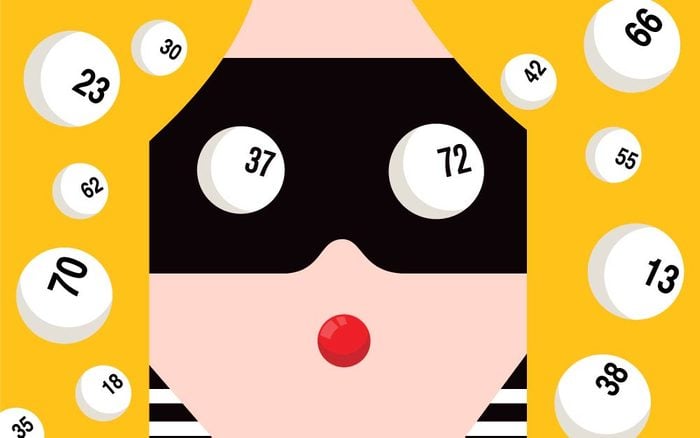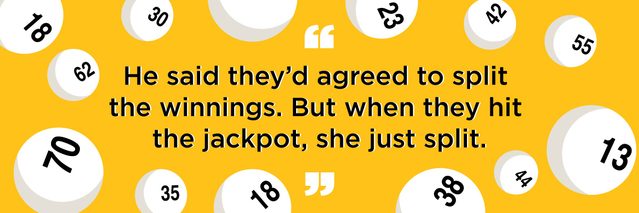This Couple Agreed to Split the Lottery If They Won. When They Did, She Left with All the Money
Updated: Nov. 10, 2022

He said they’d agreed to split the winnings. But when they hit the jackpot, she just split.
Lynn Anne Poirier and Howard Browning had been living together in Poirier’s home when they made a verbal deal: If either ever won the lottery, they’d split the winnings 50/50. The Sanford, Florida, couple weren’t just every-now-and-then lottery players. They bought tickets as often as possible and, in the days before Powerball, even road-tripped north to try their luck in big-number lotteries in Georgia and South Carolina. These are the secrets lottery winners won’t tell you.
On June 2, 2007, they stopped at a convenience store, where each bought tickets for the Florida Lottery’s big Firecracker Millionaire Raffle. Browning says that, as usual, the pair (who were both 53 at the time) placed the tickets on the fireplace mantel of their home. Then, after the drawing on July 4, Poirier didn’t come home. Confused and concerned, Browning eventually thought to check the lottery tickets and discovered that one of the ones that Poirier had purchased, No. 666168, was missing. It was the winning ticket. Poirier had collected the cash—$750,000 after taxes—and didn’t return home for a month. When she finally came back, Browning asked for his half of the winnings, but she refused to share. Want to win the lotto yourself? These are the most popular numbers.

Six months later, Browning sued Poirier for breach of oral contract. There were two sides to the story, of course. Poirier claimed that they’d never agreed to split any winnings, that she’d purchased the ticket herself, that they’d broken up months before they bought the tickets (she said she’d been living with her mother), and that she’d ended up running into him at the convenience store that night by chance. Browning stood by their unwritten contract. He claimed that he’d actually paid for the lottery tickets (and had an ATM receipt to prove it) and that they’d stopped at the store that night after having dinner together at Red Lobster.
But the he said/she said was overshadowed in court by Poirier’s claim that even if they’d made the deal, she was protected by Florida’s Statute of Frauds. The law states that an agreement that isn’t capable of being performed within a year “must be reduced to writing to make it enforceable.” Since Poirier had won 14 years after they’d supposedly made the deal, Mark Sessums, Poirier’s attorney, argued that the contract was null and void because they’d never written it down.
Did the lottery winner have to honor a verbal agreement to split her winnings? You be the judge.
The Verdict
Yes, she did. After the trial court and the Florida Fifth District Court of Appeal both ruled for Poirier in 2012, Browning appealed to the Supreme Court of Florida—and won. Poirier was correct: The agreement wasn’t executed within a year of being made, because they hadn’t won yet. But they could have won, and that made all the difference. The supreme court held that because the verbal agreement could have been completed within one year, it didn’t need to be in writing in order to be enforceable. So the court sent the case back for a new trial. This time, in February 2016, Poirier lost; she was ordered to pay Browning $291,000. However, his attorney, Sean Sheppard, called it “a hollow victory” because a month later, Poirier said she had spent all the money and filed for bankruptcy. Browning is now contesting that claim. Next, learn how this man rigged the lottery five times before he got caught.